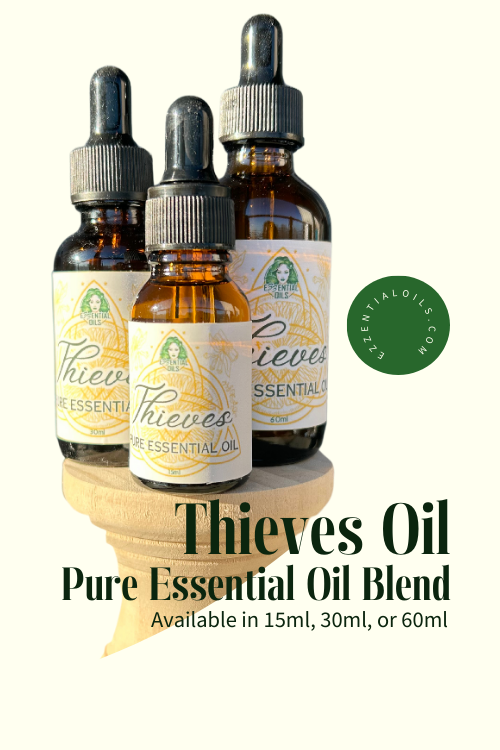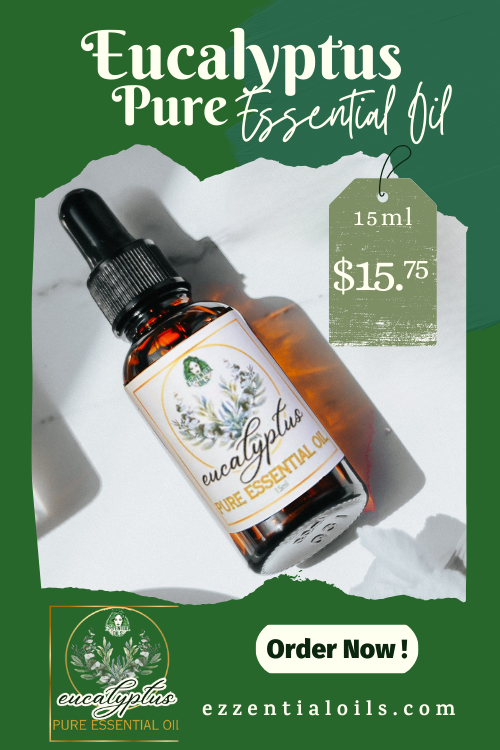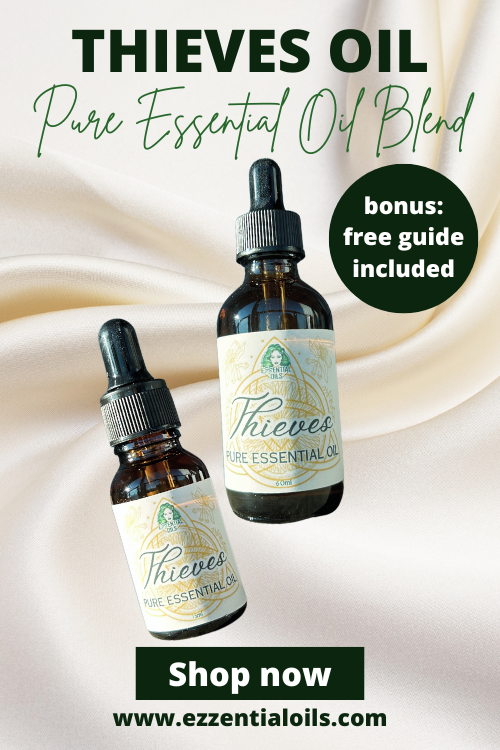Aromatherapy For Hope:
Natural Support For Depression
Depression is a complex and multifaceted condition that affects millions of people worldwide. It is characterized by a persistent low mood, feelings of hopelessness, fatigue, and a diminished ability to enjoy life. The impacts of depression go beyond the emotional realm, influencing mental, physical, and social well-being. While professional care, such as therapy and medication, plays a crucial role in managing depression, complementary approaches like aromatherapy can provide additional support. Aromatherapy, a holistic practice using essential oils, has gained recognition for its ability to enhance mood, promote relaxation, and foster emotional healing. This article explores how aromatherapy can serve as a valuable tool in navigating the challenges of depression.
Understanding Depression and Aromatherapy
What is Depression?
Depression is more than just a fleeting sadness or a bad day. It is a serious mental health condition that can affect every aspect of a person's life. Common symptoms include persistent feelings of sadness or emptiness, loss of interest in previously enjoyable activities, difficulty concentrating, changes in appetite or sleep patterns, and physical symptoms such as fatigue or aches. In severe cases, depression may lead to thoughts of self-harm or suicide.
The prevalence of depression is significant, affecting people of all ages and backgrounds. According to the World Health Organization, depression is one of the leading causes of disability worldwide. It can manifest in varying degrees of severity, from mild episodes that impact daily life to severe, chronic conditions requiring intensive care. Recognizing depression as a complex condition underscores the importance of a holistic approach to treatment, integrating both professional interventions and supportive practices like aromatherapy.
How Aromatherapy Supports Mental Health
Aromatherapy taps into the powerful connection between scent and the brain. When essential oils are inhaled, their aromatic molecules travel through the olfactory system, directly interacting with the limbic system—the part of the brain responsible for emotions, memories, and behavior. This direct pathway allows scents to influence emotional states almost instantaneously. For example, certain essential oils can promote relaxation, reduce stress, or uplift the mood.
The therapeutic effects of aromatherapy make it a valuable complementary tool in mental health care. While it is not a substitute for therapy or medication, it can enhance emotional well-being by creating a sense of calm, fostering positive emotions, and alleviating feelings of anxiety or despair. Aromatherapy's accessibility and ease of use make it an appealing option for those seeking natural support in managing depression.
Top Essential Oils for Depression
Rose Geranium Essential Oil
Rose Geranium essential oil is known for its sweet, earthy aroma that has an immediate uplifting effect. Its mildly sedative properties help balance emotions while renewing energy. It is particularly effective for those experiencing emotional instability or stress.
Helichrysum Essential Oil
Helichrysum essential oil has a refreshing and sweet fragrance that is both alluring and soothing. It is renowned for its ability to support mental recovery, providing calmness and clarity. When combined with mint and basil, it can help alleviate mental fatigue and physical stress, making it ideal for those dealing with burnout or emotional exhaustion.
Frankincense Essential Oil
Frankincense is a sacred oil with a warm, woody, and spicy scent. It is powerfully grounding, helping to foster self-acceptance, optimism, and mental resilience. This oil is especially beneficial for those struggling with feelings of insecurity or a lack of direction.
Neroli Essential Oil
Neroli essential oil, with its crisp and floral aroma, is widely recognized for its positive effects on mental health. It calms frantic thoughts, reduces anxiety, and provides comfort during periods of grief and tragedy. Its soothing properties make it a valuable tool for emotional healing.
Patchouli Essential Oil
Patchouli's strong, musky, and earthy scent is a powerful ally for combating loneliness and despair. It acts as an aphrodisiac and mood enhancer, helping to alleviate depressive states and foster a sense of connection and warmth.
Sweet Basil Essential Oil
Sweet Basil essential oil is particularly effective for addressing negative feelings resulting from isolation or detachment. Its herbal aroma encourages emotional regulation, enhances mental resilience, and boosts mental stamina, making it an excellent choice for those feeling overwhelmed.
Peppermint Essential Oil
Peppermint essential oil is known for its energizing and refreshing properties. It boosts mental focus, sharpens concentration, and helps individuals stay grounded in the present moment. This makes it a great option for combating mental fog or low energy levels associated with depression.
Clove Bud Essential Oil
Clove Bud essential oil has a warm, spicy fragrance that immediately energizes the mind and body. It is particularly effective for combating mental and physical lethargy, making it a valuable tool for those experiencing exhaustion.
Vetiver Essential Oil
Vetiver's potent and earthy aroma provides profound calmness and relaxation. It is often referred to as the “oil of tranquility” and is highly effective for managing anxiety and promoting restful sleep.
Lemon Essential Oil
Lemon essential oil has a bright, citrusy scent that stimulates alertness and eliminates procrastination. Its cheerful aroma promotes a positive mood, making it a valuable addition to any aromatherapy routine for depression.
Grapefruit Essential Oil
Grapefruit essential oil offers a fresh, sharp, and cheerful fragrance. It is used to boost mental strength, drive, and energy while suppressing negative emotions. Its invigorating properties make it ideal for starting the day on a positive note.
Methods of Using Essential Oils for Depression Relief
Diffusion
Diffusion is one of the most effective ways to use essential oils for mood enhancement. A diffuser disperses the aromatic molecules into the air, creating a calming or uplifting environment. Suggested blends include:
Morning Uplift: 2 drops Lemon, 2 drops Grapefruit, 1 drop Peppermint.
Evening Calm: 3 drops Vetiver, 2 drops Frankincense, 1 drop Patchouli.
Inhalation
For quick relief, personal inhalers or a few drops of essential oil on a tissue can be used. This portable method allows individuals to manage sudden mood dips or anxiety while on the go.
Topical Application
Blending essential oils with carrier oils (e.g., jojoba, almond, or coconut oil) creates a soothing mixture for massages. Focus on areas such as the neck, temples, or wrists to enhance emotional balance and promote relaxation.
Aromatic Baths
Adding essential oils to a warm bath creates a therapeutic experience that soothes the mind and body. Combine 3 drops of Neroli, 2 drops of Rose Geranium, and 1 drop of Sweet Basil with a tablespoon of carrier oil before adding to bathwater for an emotionally restorative soak.
Creating a Personalized Aromatherapy Routine
Daily Practices
Incorporating aromatherapy into daily routines can provide consistent support. Begin the day by diffusing energizing oils like Lemon or Peppermint to promote focus and positivity. In the evening, use calming blends for massages or baths to unwind and prepare for restful sleep.
Mindfulness and Aromatherapy
Pairing aromatherapy with mindfulness practices can deepen its impact. Practice deep breathing with scents like Vetiver or Frankincense during meditation or journaling sessions. Combining scents with positive affirmations can create powerful associations that enhance emotional well-being.
Safety Tips for Using Essential Oils
Always dilute essential oils with carrier oils for topical application to avoid skin irritation.
Perform a patch test before using a new essential oil to check for allergies or sensitivities.
Do not ingest essential oils unless under the guidance of a qualified professional.
Store essential oils in a cool, dark place to maintain their potency and effectiveness.
When to Seek Professional Help
While aromatherapy is a supportive tool, it is not a standalone treatment for depression. If you or someone you know is experiencing severe or persistent symptoms, it is crucial to consult a mental health professional. Therapy, medication, and hotlines provide essential resources for recovery. Aromatherapy can complement these treatments to enhance overall well-being.
Aromatherapy offers a natural and gentle way to support emotional healing and manage symptoms of depression. By incorporating essential oils into daily routines, individuals can foster relaxation, uplift their mood, and promote resilience. Small, consistent steps, like using a favorite essential oil blend, can make a meaningful difference in the journey toward emotional balance and healing. Embrace the power of aromatherapy and discover its potential to brighten your path to recovery.
Please note, the International Federation of Aromatherapists do not recommend that Essential Oils be taken internally, unless under the supervision of a Medical Doctor, who is also qualified in clinical Aromatherapy. In addition, Essential Oils must be properly diluted before use, in order to avoid any damages to property or adverse physical effects (including injury or bodily harm).
This article is for information purposes only. All Ezzential Oils products are for external use only unless otherwise indicated. This information is not intended to diagnose, treat, cure, or prevent any disease, and it should not be used by anyone who is pregnant or under the care of a medical practitioner. Please refer to our policies for further details, and our disclaimer below.
Understanding Depression and Aromatherapy
What is Depression?
Depression is more than just a fleeting sadness or a bad day. It is a serious mental health condition that can affect every aspect of a person's life. Common symptoms include persistent feelings of sadness or emptiness, loss of interest in previously enjoyable activities, difficulty concentrating, changes in appetite or sleep patterns, and physical symptoms such as fatigue or aches. In severe cases, depression may lead to thoughts of self-harm or suicide.
The prevalence of depression is significant, affecting people of all ages and backgrounds. According to the World Health Organization, depression is one of the leading causes of disability worldwide. It can manifest in varying degrees of severity, from mild episodes that impact daily life to severe, chronic conditions requiring intensive care. Recognizing depression as a complex condition underscores the importance of a holistic approach to treatment, integrating both professional interventions and supportive practices like aromatherapy.
How Aromatherapy Supports Mental Health
Aromatherapy taps into the powerful connection between scent and the brain. When essential oils are inhaled, their aromatic molecules travel through the olfactory system, directly interacting with the limbic system—the part of the brain responsible for emotions, memories, and behavior. This direct pathway allows scents to influence emotional states almost instantaneously. For example, certain essential oils can promote relaxation, reduce stress, or uplift the mood.
The therapeutic effects of aromatherapy make it a valuable complementary tool in mental health care. While it is not a substitute for therapy or medication, it can enhance emotional well-being by creating a sense of calm, fostering positive emotions, and alleviating feelings of anxiety or despair. Aromatherapy's accessibility and ease of use make it an appealing option for those seeking natural support in managing depression.
Top Essential Oils for Depression
Rose Geranium Essential Oil
Rose Geranium essential oil is known for its sweet, earthy aroma that has an immediate uplifting effect. Its mildly sedative properties help balance emotions while renewing energy. It is particularly effective for those experiencing emotional instability or stress.
Helichrysum Essential Oil
Helichrysum essential oil has a refreshing and sweet fragrance that is both alluring and soothing. It is renowned for its ability to support mental recovery, providing calmness and clarity. When combined with mint and basil, it can help alleviate mental fatigue and physical stress, making it ideal for those dealing with burnout or emotional exhaustion.
Frankincense Essential Oil
Frankincense is a sacred oil with a warm, woody, and spicy scent. It is powerfully grounding, helping to foster self-acceptance, optimism, and mental resilience. This oil is especially beneficial for those struggling with feelings of insecurity or a lack of direction.
Neroli Essential Oil
Neroli essential oil, with its crisp and floral aroma, is widely recognized for its positive effects on mental health. It calms frantic thoughts, reduces anxiety, and provides comfort during periods of grief and tragedy. Its soothing properties make it a valuable tool for emotional healing.
Patchouli Essential Oil
Patchouli's strong, musky, and earthy scent is a powerful ally for combating loneliness and despair. It acts as an aphrodisiac and mood enhancer, helping to alleviate depressive states and foster a sense of connection and warmth.
Sweet Basil Essential Oil
Sweet Basil essential oil is particularly effective for addressing negative feelings resulting from isolation or detachment. Its herbal aroma encourages emotional regulation, enhances mental resilience, and boosts mental stamina, making it an excellent choice for those feeling overwhelmed.
Peppermint Essential Oil
Peppermint essential oil is known for its energizing and refreshing properties. It boosts mental focus, sharpens concentration, and helps individuals stay grounded in the present moment. This makes it a great option for combating mental fog or low energy levels associated with depression.
Clove Bud Essential Oil
Clove Bud essential oil has a warm, spicy fragrance that immediately energizes the mind and body. It is particularly effective for combating mental and physical lethargy, making it a valuable tool for those experiencing exhaustion.
Vetiver Essential Oil
Vetiver's potent and earthy aroma provides profound calmness and relaxation. It is often referred to as the “oil of tranquility” and is highly effective for managing anxiety and promoting restful sleep.
Lemon Essential Oil
Lemon essential oil has a bright, citrusy scent that stimulates alertness and eliminates procrastination. Its cheerful aroma promotes a positive mood, making it a valuable addition to any aromatherapy routine for depression.
Grapefruit Essential Oil
Grapefruit essential oil offers a fresh, sharp, and cheerful fragrance. It is used to boost mental strength, drive, and energy while suppressing negative emotions. Its invigorating properties make it ideal for starting the day on a positive note.
Methods of Using Essential Oils for Depression Relief
Diffusion
Diffusion is one of the most effective ways to use essential oils for mood enhancement. A diffuser disperses the aromatic molecules into the air, creating a calming or uplifting environment. Suggested blends include:
Morning Uplift: 2 drops Lemon, 2 drops Grapefruit, 1 drop Peppermint.
Evening Calm: 3 drops Vetiver, 2 drops Frankincense, 1 drop Patchouli.
Inhalation
For quick relief, personal inhalers or a few drops of essential oil on a tissue can be used. This portable method allows individuals to manage sudden mood dips or anxiety while on the go.
Topical Application
Blending essential oils with carrier oils (e.g., jojoba, almond, or coconut oil) creates a soothing mixture for massages. Focus on areas such as the neck, temples, or wrists to enhance emotional balance and promote relaxation.
Aromatic Baths
Adding essential oils to a warm bath creates a therapeutic experience that soothes the mind and body. Combine 3 drops of Neroli, 2 drops of Rose Geranium, and 1 drop of Sweet Basil with a tablespoon of carrier oil before adding to bathwater for an emotionally restorative soak.
Creating a Personalized Aromatherapy Routine
Daily Practices
Incorporating aromatherapy into daily routines can provide consistent support. Begin the day by diffusing energizing oils like Lemon or Peppermint to promote focus and positivity. In the evening, use calming blends for massages or baths to unwind and prepare for restful sleep.
Mindfulness and Aromatherapy
Pairing aromatherapy with mindfulness practices can deepen its impact. Practice deep breathing with scents like Vetiver or Frankincense during meditation or journaling sessions. Combining scents with positive affirmations can create powerful associations that enhance emotional well-being.
Safety Tips for Using Essential Oils
Always dilute essential oils with carrier oils for topical application to avoid skin irritation.
Perform a patch test before using a new essential oil to check for allergies or sensitivities.
Do not ingest essential oils unless under the guidance of a qualified professional.
Store essential oils in a cool, dark place to maintain their potency and effectiveness.
When to Seek Professional Help
While aromatherapy is a supportive tool, it is not a standalone treatment for depression. If you or someone you know is experiencing severe or persistent symptoms, it is crucial to consult a mental health professional. Therapy, medication, and hotlines provide essential resources for recovery. Aromatherapy can complement these treatments to enhance overall well-being.
Aromatherapy offers a natural and gentle way to support emotional healing and manage symptoms of depression. By incorporating essential oils into daily routines, individuals can foster relaxation, uplift their mood, and promote resilience. Small, consistent steps, like using a favorite essential oil blend, can make a meaningful difference in the journey toward emotional balance and healing. Embrace the power of aromatherapy and discover its potential to brighten your path to recovery.
Safety Information
Please note, the International Federation of Aromatherapists do not recommend that Essential Oils be taken internally, unless under the supervision of a Medical Doctor, who is also qualified in clinical Aromatherapy. In addition, Essential Oils must be properly diluted before use, in order to avoid any damages to property or adverse physical effects (including injury or bodily harm).
This article is for information purposes only. All Ezzential Oils products are for external use only unless otherwise indicated. This information is not intended to diagnose, treat, cure, or prevent any disease, and it should not be used by anyone who is pregnant or under the care of a medical practitioner. Please refer to our policies for further details, and our disclaimer below.













